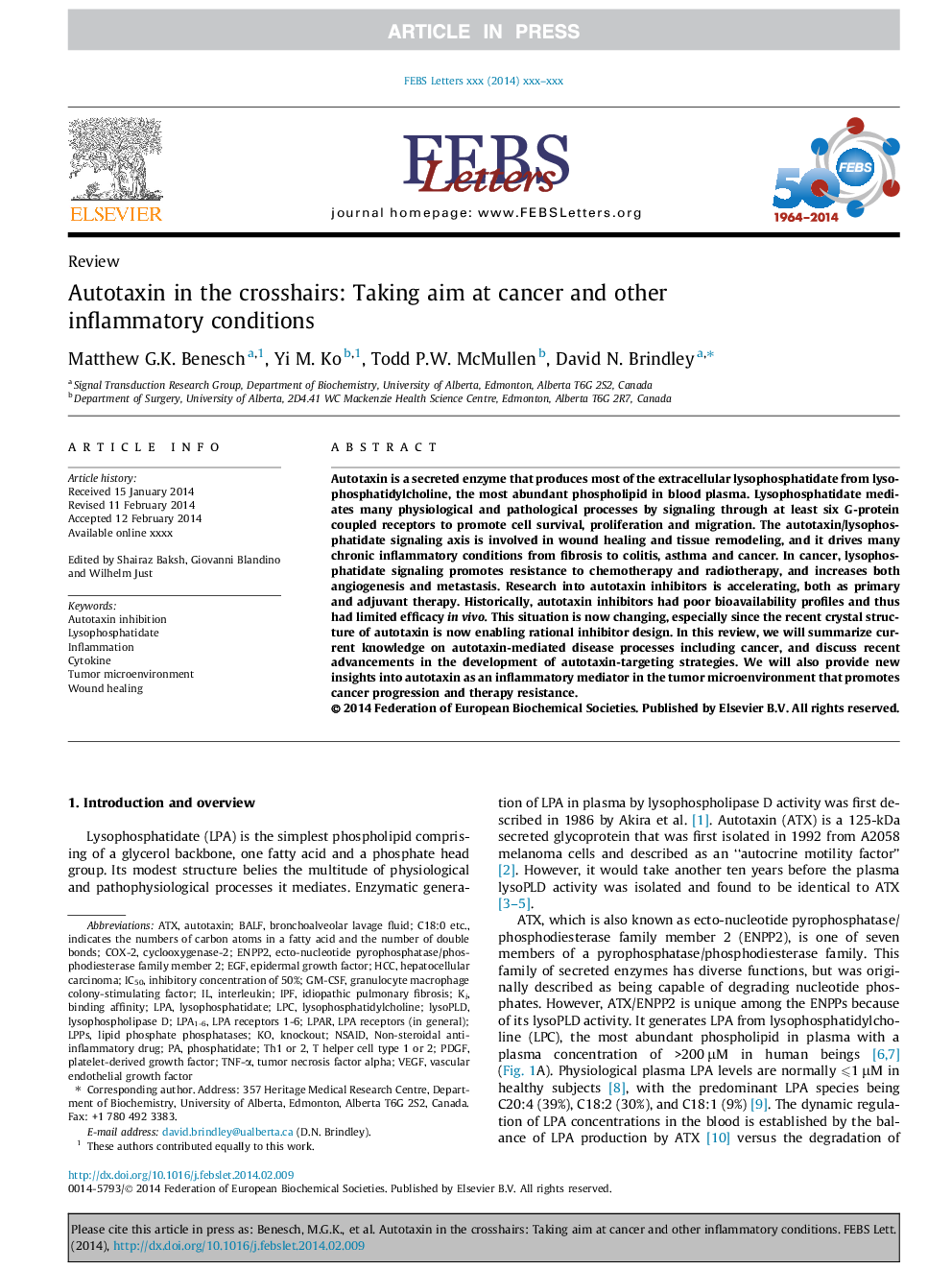| Article ID | Journal | Published Year | Pages | File Type |
|---|---|---|---|---|
| 10870231 | FEBS Letters | 2014 | 16 Pages |
Abstract
Autotaxin is a secreted enzyme that produces most of the extracellular lysophosphatidate from lysophosphatidylcholine, the most abundant phospholipid in blood plasma. Lysophosphatidate mediates many physiological and pathological processes by signaling through at least six G-protein coupled receptors to promote cell survival, proliferation and migration. The autotaxin/lysophosphatidate signaling axis is involved in wound healing and tissue remodeling, and it drives many chronic inflammatory conditions from fibrosis to colitis, asthma and cancer. In cancer, lysophosphatidate signaling promotes resistance to chemotherapy and radiotherapy, and increases both angiogenesis and metastasis. Research into autotaxin inhibitors is accelerating, both as primary and adjuvant therapy. Historically, autotaxin inhibitors had poor bioavailability profiles and thus had limited efficacy in vivo. This situation is now changing, especially since the recent crystal structure of autotaxin is now enabling rational inhibitor design. In this review, we will summarize current knowledge on autotaxin-mediated disease processes including cancer, and discuss recent advancements in the development of autotaxin-targeting strategies. We will also provide new insights into autotaxin as an inflammatory mediator in the tumor microenvironment that promotes cancer progression and therapy resistance.
Keywords
ENPP2GM-CSFLPCATXIPFLPACOX-2LPPSIC50PDGFNSAIDAutotaxinLysoPLDLPARlipid phosphate phosphatasesEGFHCCinflammationWound HealinginterleukinBALFtumor necrosis factor alphaCytokineCyclooxygenase-2epidermal growth factorInhibitory concentration of 50%Non-steroidal anti-inflammatory drugVascular endothelial growth factorVascular Endothelial Growth Factor (VEGF)platelet-derived growth factorTNF-αPhosphatidateidiopathic pulmonary fibrosisLysophosphatidylcholinelysophospholipase DLysophosphatidategranulocyte macrophage colony-stimulating factorBronchoalveolar lavage fluidTumor microenvironmentknockoutBinding affinityHepatocellular carcinoma
Related Topics
Life Sciences
Agricultural and Biological Sciences
Plant Science
Authors
Matthew G.K. Benesch, Yi M. Ko, Todd P.W. McMullen, David N. Brindley,
